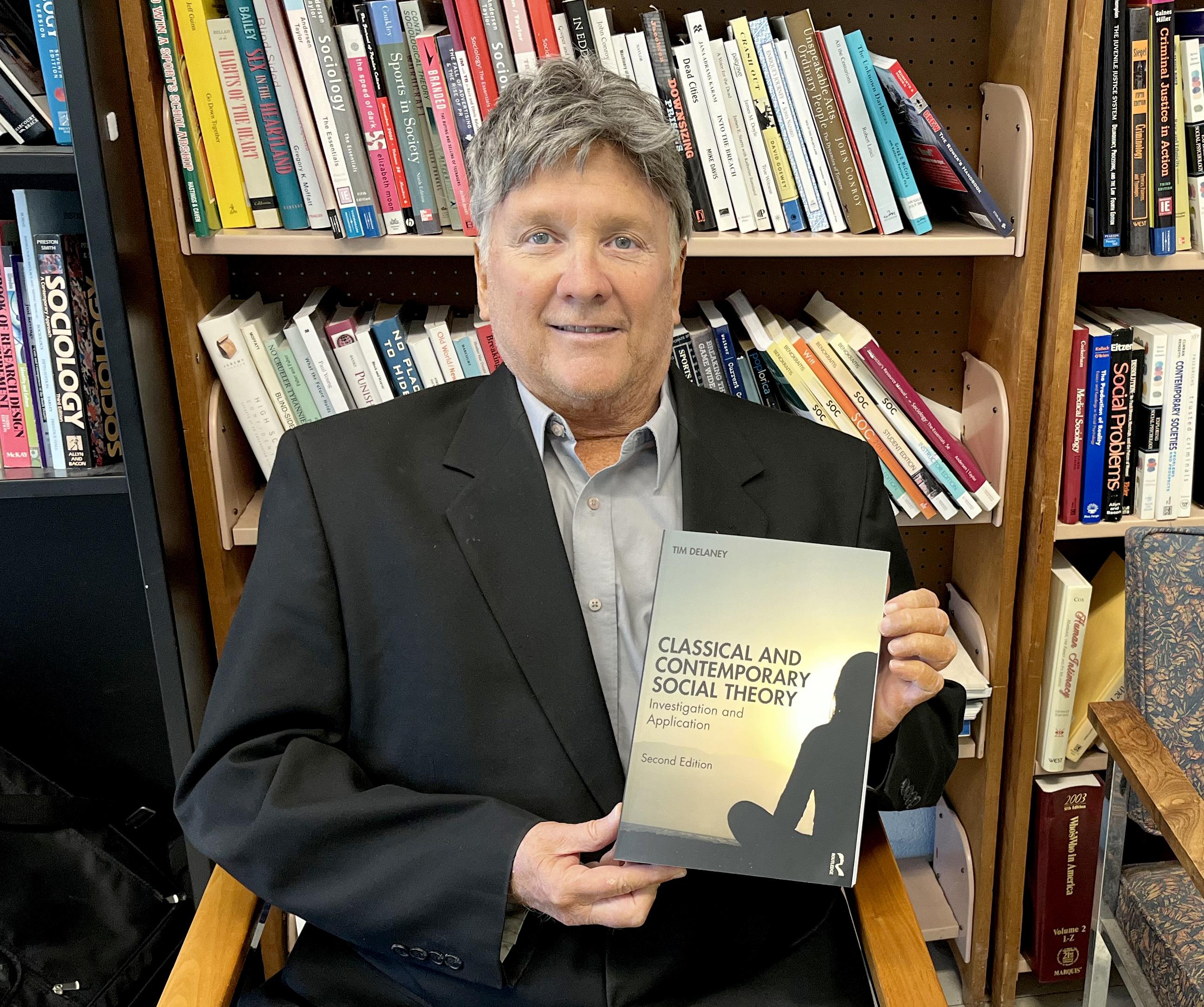Sociology professor Tim Delaney looks at five centuries of how humans studied and tried to improve society in his second, extensively updated edition of “Classical and Contemporary Social Thought: Investigation and Application.”
The large academic and professional publisher Routledge asked him to produce an updated edition of his 2014 textbook, which has enjoyed widespread use. The publication spans 500 years of social thought going back to before sociology existed as a field of study and was considered more the realm of philosophy. Along the way, it covers classical social theorists and influential sociological schools of thought in the contemporary period.
“From one edition to another, many books feature only about 10 percent new material,” Delaney said. “This textbook is more than half new material. The structure of chapters is mostly the same with a lot of new content in each.”
Its main sections are a Part I, covering classical social thought, and a Part II on contemporary social thought, with a short Part III analyzing all 500 years.
He noted that some courses use the textbook to teach the two different classes on just classical or contemporary social theorists, while some courses have used it to teach much of the whole 500-year span.
In developing the new edition, Delaney has incorporated some additional thinkers to expand the book’s coverage of the field and included new ways of describing key concepts. He added newer relevant topics including critical race theory, the #MeToo movement and Black Lives Matter to underscore sociological concepts. He also uses a more intersectional lens to better present a wide view.
Bridging eras
One thing that came up from the original edition is that it did not include the influential and popular W.E.B. Du Bois because his timeframe rested between classical and contemporary eras. The updated edition includes Du Bois and some contemporaries in a chapter that serves as a kind of bridge joining the two main sections.
The new chapter, “Growing Diversity in American Sociological Theory: Lester Frank Ward, Thorstein Veblen and W.E.B. Du Bois,” also addresses gaps in traditional texts.
“Ward is acknowledged as the first American sociologist,” Delaney explained. “It’s a shame he isn’t better known because he had some very influential ideas.”
The peer reviewers reacted very positively to this addition, and Delaney thinks other readers would as well.
“The reviewers absolutely loved it,” Delaney said of the new chapter. “This is an important transitional period from classical to contemporary sociology. It fits really well there.”
He also expanded a chapter that previously focused on postmodernism to also include more content on structuralism, post-structuralism, globalization theory, colonialism and post-colonialism.
From past to future
“It’s pretty cool because it covers around 500 years of social theory,” Delaney said. “It also covers the question of where we start to see that split from purely philosophy to what we now know as social theory. People more or less cite Machiavelli’s ‘The Prince’ in 1513 because he talks about society as it was instead of how it should be.”
Yet the field of sociology would not really develop for almost another 300 years.
It was 19th-century scholar Auguste Comte who first coined the term “sociology,” and Delaney notes that a field doesn’t exist in a practical manner until it has a name and established parameters.
“Sociology is really concerned with what’s going on, what should be going on and what we can do to make lives better for people,” Delaney explained.
Delaney noticed eight recurring themes that pervade the history of society and are running threads within the book:
- Belief in progress and cultural evolution
- Technological growth
- Coping with limited social and natural resources
- Overpopulation
- Capitalization, the worldwide community and globalization
- The importance of communication, language and developing a universal language
- Role of religion in society
- Social injustice and the balance of power
“When you look at trends over 500 years, you start seeing and predicting topics that will be important in the future, because they keep coming up over and over,” Delaney said. “By looking at such a long period of history, you are, in a way, predicting the future.”
There is not a lot of competition in the textbook industry right now in this field or particularly this topic with such a wide-ranging view, Delaney said.
In addition, the “application” from the title of the book is a key differentiator, as Delaney takes social theory and infuses it into everyday examples that people can understand. “Showing the relevance of these topics, and updating them to keep them relevant, is important,” he said.
“This should be the leading theory book in this field,” Delaney said.




